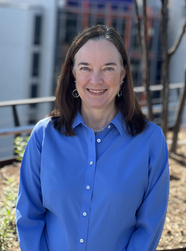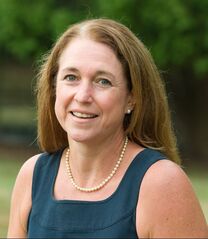The Association for Academic Leaders Advisory Council met last Friday, and AI was on their minds, too. Several of the members had given the site a try, and the results had impressed, dismayed, or even encouraged them. Several mentioned that the site seemed to have merit as a “jumping off point” for work to be more developed by the author. A former AP teacher proclaimed an essay “worth at least a 4.” An English teacher followed up after the conversation by saying that while we’d discussed how a student could generate an AI essay and then “back into” an outline and a rough draft or two to appear to have gone through the writing process, she believed that most students who commit academic dishonesty are trying to create shortcuts and that didn’t seem to be much of a shortcut to her. The consensus was that teachers and Academic Leaders would need to explore, understand, and address ChatGTP, as was the case with tools already available in areas such as math, world languages, and art (Wolfram Alpha, AI;R Math, DALL-E and more). During the conversation, I shared that I’d asked the AI, “How can a teacher tell if an essay is written by AI instead of by the student submitting the work?” (Find ChatGTP’s answer at the end of this post). The limits of the AI become evident pretty quickly. The results are hardly inclusive. I asked for novel suggestions and the AI generated a list of books by white authors (and only one woman). Evidence abounds that AI algorithms are biased, can be racist, and “deepen racial and economic disparities.” While the question seems to be how to make AI “better,” schools would do well to ensure that students understand these profound inequities are baked into much, if not all, of the AI they’ll encounter. And of course, there’s the fact that the user’s data “may be reviewed by our AI trainers to improve our systems.” Yup, in using these tools, you’re giving up valuable insights to the companies building the algorithms. For these reasons alone, schools need to teach students about AI, how it works, how using it might help learners, and where they should be cautious rather than ignoring it or trying to find ways to keep students from using it with blockers and other tech tools. Peter Gow and I did some further poking at the AI’s capabilities. We found that answers were often circular once the questions got philosophical. “How to end inequity in education?” ChatGTP helpfully offered that we just needed to examine the root causes of inequity in society at large and eliminate those. Problem solved. On the other hand, we played around with a book idea and the resulting outline wasn’t bad for organizing ideas into sections and chapters. AI generated text is certainly going to be a boon to the publishers of “clickbaity” pieces such as “Top 10 Tips for Tying Shoes” that one might find on a specialty laces shop. So there’s a paying gig for a human gone, and I’ll let others decide whether or not that’s a loss. Canva, a widely-used website for infographic/poster generation, has incorporated AI (dubbed Magic Studio) with the caveat that the use of AI must be credited on the final version of work. Media stories range from the Atlantic proclaiming the “end of the college essay” to the Washington Post celebrating that a dyslexic landscaper has developed new confidence in client communications. In trying to think about what this addition to the technology landscape means, both right now and going forward, I engaged in writing this blog post, an activity that helped me organize my thoughts around AI generated text. Organizing one’s thinking is part of every course; teachers can and should consider incorporating AI into this work. The art of generating the right question to elicit an answer to an assignment is worth teaching, just as we teach students how to write search queries. The natural next step is to consider whether you got useful answers. How do you know? Asking students to design powerful questions rather than regurgitate memorized answers is nothing new to independent school faculty! Educators can and should explore the impact of using AI to assist students with communication disorders. But once the questions are asked, there’s then the value of engaging in the longer writing process, and here’s where it gets trickier. Genuine engagement in writing longer text forces the writer to organize their thoughts, interrogate what’s on paper, see where more research or re-thinking is needed and revise accordingly. Paragraphs move, evidence is cited, false trails are followed, then rejected, Teachers will know that students have engaged in that level of work when they know their students well, engage in dialogue with them while they write (or solve complex math problems or compose music, etc). Further, the culture of the school (this one’s on you, Academic Leaders) needs to prioritize the inclusive work of intellectual engagement, and that of making thinking visible, over the grading of the end piece. Oh, and that response I said I’d share? My question: How can a teacher tell if an essay is written by AI instead of by the student submitting the work? Response: There are a few ways that a teacher can tell if an essay has been written by AI instead of by the student who submitted it. One way is to look for signs of artificial language, such as repetitive sentences or unnatural word combinations. Another way is to evaluate the content of the essay and see if it is relevant to the topic and meets the requirements of the assignment. The teacher can also look for inconsistencies or errors in the essay that may indicate that it was generated by a machine. Finally, the teacher can ask the student to provide additional information or clarification about the essay to verify that they are the author of the work. For more on this topic, check out this accompanying blog written by Peter Gow: Using AI's Powers for Good
4 Comments
One tool for creating a more balanced look at a candidate's competencies is to use a tactic that has been well-documented in other professions, the scenario interview, sometimes called a situational interview. These are interview questions that deal with hypothetical situations in the future and ask the candidate "what would you do in this situation?" Alternatively, you could set up a situation specifically for the interview. For example, you could ask a candidate to give a current teacher feedback on a proposed assignment for a course they'll share. When you use situational interview questions, you offer candidates with a competency the opportunity to demonstrate their skills.
If situational interviews are new to you, or if you have skeptical colleagues, here is a research study that found that situational interviews can predict performance. The scenario interview does NOT ask a candidate to "describe a time in which you..." That type of question has a couple of flaws. It privileges fast processors and those who have the exact experience addressed in the question. Association for Academic Leaders members, there’s a conversation about hiring taking place in the portal started by member Lauren Putnam, Middle School Dean of Instruction, Charlotte Latin School. Check out what your peers are saying and sharing! Interested in learning more about hiring practices? Association for Academic Leaders members get access to our entire Winter/Spring 2023 professional learning calendar, out in January.
Focus on Belonging
Academic Leaders need to ask daily: what can I do to make sure that my team feels valued, and has a sense of belonging at my school? A recent McKinsey & Company report showed a disconnect between why employers thought their employees were leaving and why they actually are leaving. The report highlighted that employers need to focus much more on employee’s sense of belonging, employees: “didn’t feel valued by their organizations (54 percent) or their managers (52 percent) or because they didn’t feel a sense of belonging at work (51 percent). Notably, employees who classified themselves as non-White or multiracial were more likely than their White counterparts to say they had left because they didn’t feel they belonged at their companies.” Re-Recruit Your Team It is time to re-recruit your current employees. And yet, January and February are notoriously challenging times in independent schools. Consider what you might do as an Academic Leader to connect deeply with everyone on your team, and reserve time in your calendar now to prioritize those connections. A recent Harvard Business Review article suggested three keys to re-recruitment: spend significant time with each of your employees to understand their motivations and ambitions; make sure that they see their positive impact on the organization and the difference they are making; and make sure that your conversations are on-going, not one and done. Get Your Job Descriptions Current Jobs have changed during the COVID pandemic, but most schools have not, in turn, altered their job descriptions. Academic Leaders will want to make sure that their job descriptions reflect the changes that occurred during the pandemic, including possibilities for job flexibility, the technological acumen required to manage new systems, compliance with local or school health and safety policies, and willingness to take on additional duties as assigned. Check in With Your Attorney The pandemic hasn’t only changed job titles and descriptions–it’s also brought about changes in hiring and employment regulations. As you review openings and positions, it’s a good idea to check in with your attorney before the hiring season begins. A short conversation will help you to understand national and state requirements, and to avoid any pitfalls that could arise in the interview and decision process. More than in any other year, a little foresight and preparation can avoid costly mistakes. MAXIM #1—Every opening is an opportunity
MAXIM #2—Know thyself as an institution and a culture; keep these things in mind:
MAXIM #3—It takes a school to hire a teacher
MAXIM #4—You can always get what you want
MAXIM #5—Check it out
MAXIM #6—Induction matters
MAXIM #7—Good teachers can be made
MAXIM #8—School culture is everything. Do all that you can to make yours both inviting and welcoming.
MAXIM #9—Not everybody wants an office
MAXIM #10—Needs matter
MAXIM #11—Old dogs actually like to learn new tricks
MAXIM #12—All things must end
The author begins with a quote (originally tweeted in 2017) that was the impetus for his investigation of Cognitive Load Theory: I’ve come to the conclusion Sweller’s Cognitive Load Theory is the single most important thing for teachers to know - Dylan Wiliam Lovell’s deep dive into the literature and theory led to this book, which begins with providing an understanding of the five key principles of CLT, followed by practical application and strategies.
Lovell explains the five principles that underpin CLT in terms of A, B, C, D and E:
These five principles can help instructional designers consider intrinsic load (the core learning that should occupy students’ working memory) while they seek to reduce extraneous load (associated with the manner and structure of instruction). While the author says that the theory section can be skipped I believe it is an essential review. This section is, perhaps, one of the clearest descriptions of the role of working memory I have encountered. The author explains the ways in which an understanding of cognitive load can help to increase the efficiency of working memory. Included in this description are specific descriptions of intrinsic load and extraneous load. Academic leaders should not skip this section! To manage cognitive load in the classroom, teachers and instructional designers should look for ways to reduce the extraneous cognitive load using elements of design and structure, while optimizing the intrinsic load using a variety of solid instructional strategies. The book includes bolded key terms and text boxes, allowing for quick access, review, and application of strategies, such as pre-teaching and segmentation, to a detailed description of the modality effect to expand working memory capacity. The strategies included apply equally to those planning for a classroom of students or a conference room of professionals. Reading this work can not only help us be better teachers and leaders, but can also offer insights to help the readers better understand themselves as learners. |
Don't miss our weekly blog posts by joining our newsletter mailing list below:AuthorsBrad Rathgeber (he/him/his) Archives
July 2024
Categories |





 RSS Feed
RSS Feed